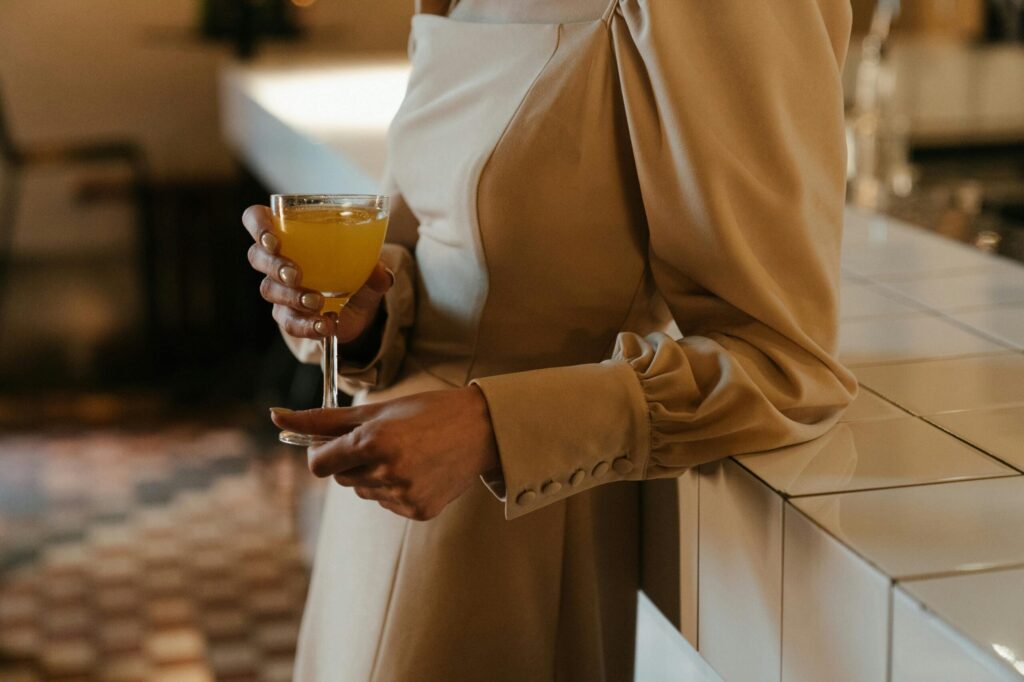Over the past decade, non alcoholic beers have surged in popularity, capturing the attention of Millennial and Gen Z consumers in particular. These younger generations are reshaping the drinking landscape by prioritizing health, wellness, and mindful consumption over traditional alcohol habits. For many who identify with the empowering declaration “I Am Sober,” non alcoholic beers offer a refreshing alternative that supports their commitment to sobriety while allowing them to partake in social experiences.
The rise of non alcoholic beers among Millennials and Gen Z reflects broader cultural shifts. These generations tend to be more health-conscious, socially aware, and skeptical of conventional drinking norms. This article explores why non alcoholic beers resonate so strongly with these groups, how they are influencing social and consumer trends, and the meaningful role they play in the lives of those who say, “I Am Sober.”
Changing Attitudes Toward Alcohol Consumption
Millennials and Gen Z have witnessed firsthand the health consequences of heavy drinking through stories from older generations and growing public awareness campaigns. This has fostered a culture that values moderation and mindful choices rather than excess.
Surveys show that younger adults are drinking less alcohol overall compared to previous generations. Instead, they seek alternatives that fit their lifestyles, such as non alcoholic beers. These beverages provide a way to enjoy the taste and ritual of drinking without the intoxication, aligning perfectly with evolving values.
Many in these groups also emphasize mental health and wellness, making sober or reduced-alcohol lifestyles more mainstream and socially accepted than ever before. The phrase “I Am Sober” has become a powerful personal statement for many young people embracing clarity and control over their well-being.
Non Alcoholic Beers as Social Facilitators
One reason non alcoholic beers have gained traction among Millennials and Gen Z is their role in social situations. Drinking often serves as a social lubricant, a way to bond and celebrate. For individuals committed to sobriety or simply reducing alcohol intake, abstaining can sometimes lead to feelings of exclusion.
Non alcoholic beers provide an inclusive option that allows people to participate fully in social rituals. For those who proudly say, “I Am Sober,” these drinks reduce social pressure and help maintain connections without compromising personal goals.
The broad availability of flavorful non alcoholic beer options means that social gatherings, bars, and restaurants are increasingly equipped to accommodate diverse drinking preferences, making sober participation easier and more enjoyable.
Health and Wellness as Driving Forces
Health considerations are central to Millennial and Gen Z consumers’ beverage choices. Awareness of alcohol’s impact on sleep, hydration, liver function, and overall wellness motivates many to cut back or quit drinking altogether.
As mentioned by I Am Sober, non alcoholic beers typically contain fewer calories and no intoxicating alcohol, making them attractive for those looking to maintain a healthier lifestyle. These beverages allow individuals to enjoy the sensory experience of beer while avoiding negative effects like hangovers or impaired judgment.
The growing wellness trend among younger generations also embraces functional beverages and products that contribute positively to physical and mental health. Non alcoholic beers fit well within this context, often marketed alongside fitness, nutrition, and mindfulness.
Quality and Variety Fuel Interest
In the past, non alcoholic beers suffered from a reputation of being bland or low quality. However, the craft beer movement and innovations in brewing technology have transformed the category. Today, there is an impressive range of non alcoholic beers available, offering diverse styles, bold flavors, and artisanal craftsmanship.
Millennials and Gen Z consumers, known for their adventurous palates and appreciation for authenticity, respond enthusiastically to these improvements. The ability to choose from IPAs, stouts, lagers, and seasonal brews enhances the appeal and elevates non alcoholic beers beyond mere substitutes.
This commitment to quality also resonates with those who say, “I Am Sober,” as it reflects a serious and respectful approach to sobriety rather than a compromise.
Sustainability and Ethical Consumption
Younger consumers increasingly prioritize sustainability and ethical considerations in their purchases. Many non alcoholic beer brands emphasize environmental responsibility, organic ingredients, and transparent sourcing practices.
This alignment with values beyond just taste or health deepens the connection Millennials and Gen Z feel with non alcoholic beer products. The appeal of supporting companies that share their ethics complements the lifestyle choices embodied by statements like “I Am Sober.”
Brands investing in sustainable packaging, carbon-neutral brewing, and community engagement gain loyalty from these socially conscious consumers, further driving the category’s growth.
Influence of Social Media and Influencers
Social media platforms play a pivotal role in shaping drinking habits and lifestyle choices among Millennials and Gen Z. Influencers and celebrities openly discussing sobriety and promoting non alcoholic beverages have helped destigmatize alcohol abstinence.
Many individuals proudly declare “I Am Sober” on platforms like Instagram and TikTok, sharing their journeys and encouraging others to reconsider their relationship with alcohol. This visibility has created vibrant communities that celebrate sober living and explore alternatives such as non alcoholic beers.
Brands leverage social media to showcase their non alcoholic beer offerings, highlight flavor profiles, and engage authentically with consumers. This direct connection fosters trust and relevance, appealing strongly to younger audiences.
Economic Factors and Accessibility
Non alcoholic beers have become more affordable and widely available, lowering barriers to trial and adoption. The presence of these beverages in mainstream retail stores, online shops, and hospitality venues means Millennials and Gen Z can easily incorporate them into everyday life.
Economic considerations also come into play. Younger generations often face financial pressures, prompting them to seek cost-effective ways to socialize and enjoy themselves. Non alcoholic beers offer a lower-cost alternative to drinking heavily or attending alcohol-centered events.
For those who say, “I Am Sober,” the accessibility of these options supports their commitment without sacrificing convenience or social engagement.
Mental Health and Sobriety Movements
Millennials and Gen Z prioritize mental health and emotional well-being, viewing sobriety not as deprivation but as empowerment. Movements encouraging open conversations about addiction, recovery, and mindful consumption have flourished, destigmatizing sobriety.
Non alcoholic beers serve as symbolic and practical tools in these movements. They provide a tangible choice that aligns with mental health priorities and sober lifestyles.
The phrase “I Am Sober” captures the strength and pride associated with this approach. Non alcoholic beers enhance this narrative by offering options that reinforce autonomy and positive identity in social contexts.
Potential Challenges and Considerations
Despite the many benefits, non alcoholic beers are not without challenges. For some individuals in recovery, even trace amounts of alcohol present in these beverages (usually less than 0.5% ABV) might be a concern. This necessitates awareness and personal discernment when incorporating them into a sober lifestyle.
Marketing must be careful not to glamorize or trivialize alcohol abstinence. The diversity of alcohol-free options, including non alcoholic cocktails and other beverages, complements non alcoholic beers and broadens choice.
Education around the ingredients, alcohol content, and potential triggers is vital to support informed decisions, especially for those who identify strongly with the phrase “I Am Sober.”
The Future of Non Alcoholic Beers Among Young Consumers
Looking ahead, the relationship between Millennials, Gen Z, and non alcoholic beers is poised to deepen. Continued innovation in brewing, expanding flavor profiles, and enhanced focus on health and sustainability will keep these beverages relevant and appealing.
The normalization of sobriety and mindful drinking within youth culture signals a lasting shift away from alcohol-centric socializing. Non alcoholic beers will play an integral role in this evolution, providing familiar rituals without compromising wellness or values.
For individuals who say, “I Am Sober,” the future holds promising possibilities for authentic, enjoyable social experiences supported by inclusive beverage options.
Conclusion
Non alcoholic beers have carved out a significant niche among Millennial and Gen Z consumers, driven by evolving attitudes toward health, wellness, and social connection. These generations embrace alternatives that honor their values and support mental and physical well-being.
For those proudly declaring “I Am Sober,” non alcoholic beers offer a meaningful way to engage in social drinking culture without compromising sobriety. The rise of quality, variety, and ethical production enhances their appeal, while social media and wellness movements continue to amplify the message.
As non alcoholic beers become a staple in youth culture, they contribute to a more inclusive, mindful, and health-conscious drinking landscape—one sip at a time.



 Eve Buttenshaw is a wellness expert and contributor to My Healthy Living and Strategies, where she brings her extensive knowledge of mental health, nutrition, and holistic well-being to the forefront. Eve’s passion for empowering individuals to live healthier, more mindful lives is reflected in her thoughtful and informative content.
Eve Buttenshaw is a wellness expert and contributor to My Healthy Living and Strategies, where she brings her extensive knowledge of mental health, nutrition, and holistic well-being to the forefront. Eve’s passion for empowering individuals to live healthier, more mindful lives is reflected in her thoughtful and informative content.